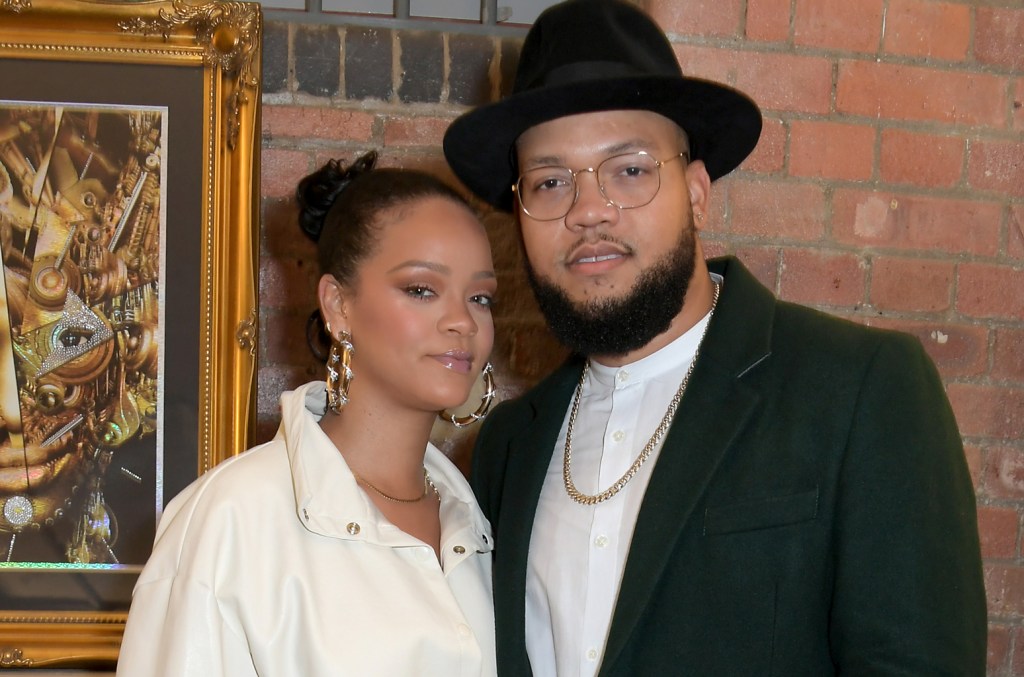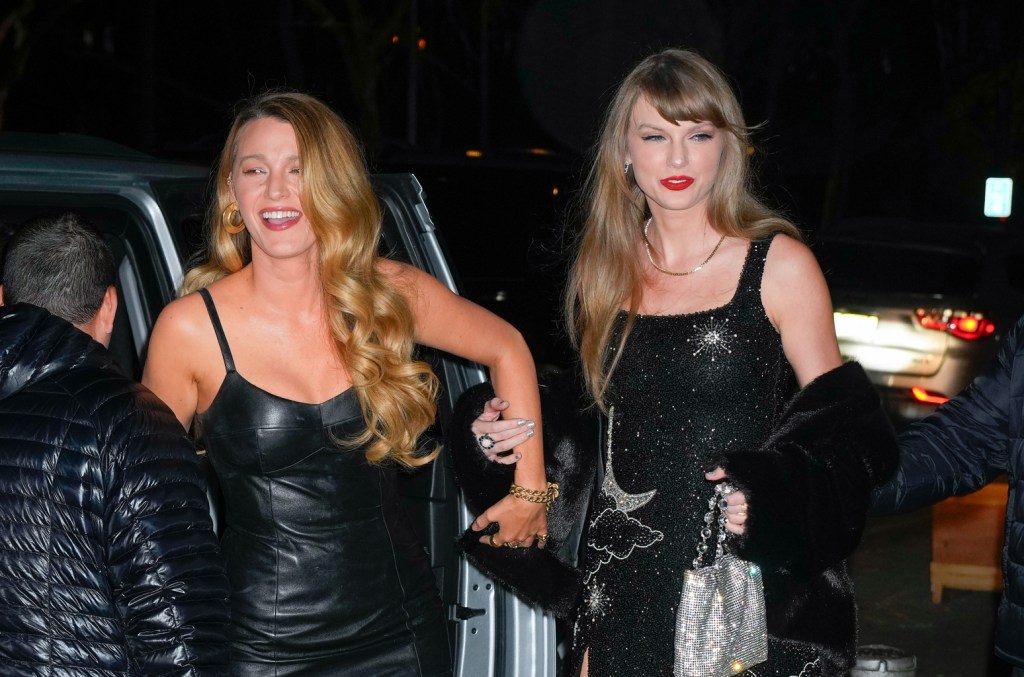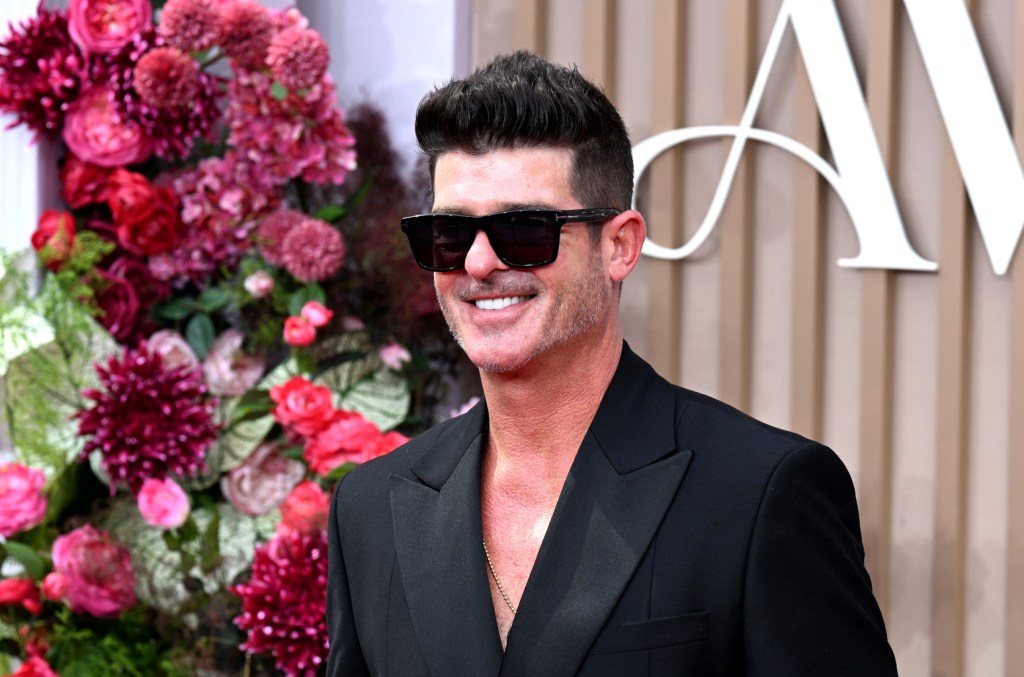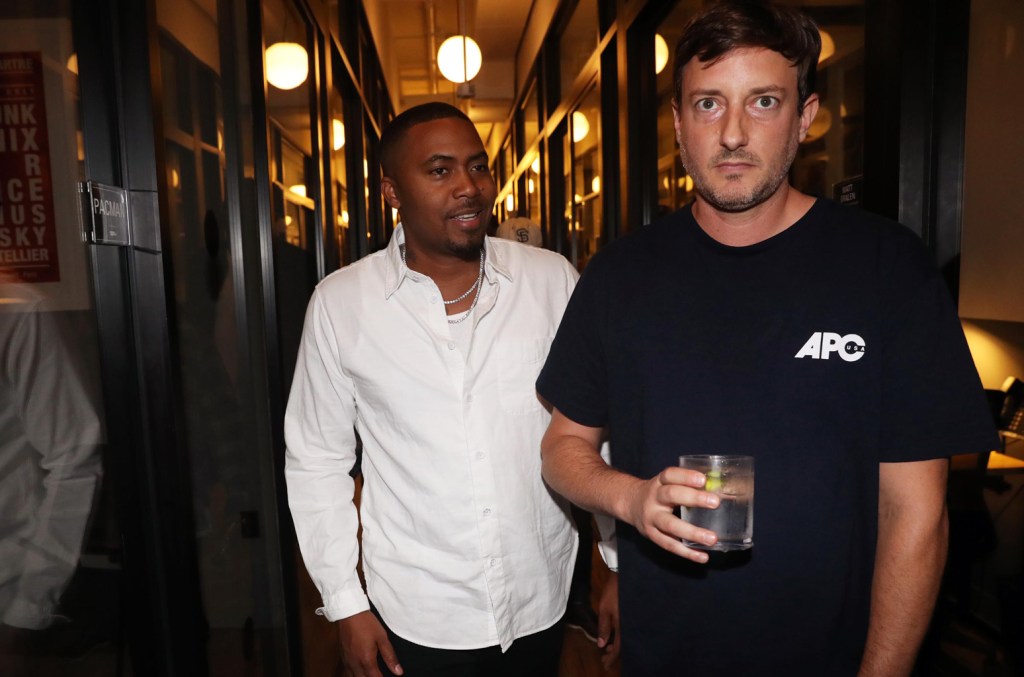Legal
Page: 10

A beverage startup that once planned to work with Rihanna’s brother will pay the Securities and Exchange Commission (SEC) more than $1 million for allegedly lying about nonexistent talks to develop an alcohol brand called “RiRi Rum” with the music icon.
Long Island-based beverage company The3rdBevco and its founder, Peter Scalise III, agreed to a $1.1 million SEC fine, according to court documents filed Tuesday (June 17). The settlement states that Scalise and The3rdBevco neither admit nor deny the allegations made by the federal investments regulator in a civil complaint docketed the same day.
In 2022, The3rdBevco publicly announced that it planned to bring on Rihanna’s brother, Rorrey Fenty, as a “senior strategic consultant” to develop a new alcohol brand called RiRi Rum in collaboration with the superstar singer and business mogul (born Robyn Rihanna Fenty).
Trending on Billboard
The SEC says that while it’s true that The3rdBevco did sign a letter of intent to hire Rorrey as a consultant, “there was never any deal, negotiation discussion or any other contact” with Rihanna or her management team for this supposed rum collaboration.
According to the complaint, The3rdBevco and Scalise repeatedly lied to investors throughout 2022 and 2023 that they were actively working with Rihanna on the rum product. Along the way, says the SEC, they used Rihanna’s “RiRi” trademark without her permission and included unauthorized Rihanna songs, images and even a fake signature attributed to the artist in investor presentations.
Neither Rihanna nor Rorrey is accused of participating in this illegal activity. While Rorrey did say he would try to facilitate a meeting between The3rdBevco and Rihanna if brought on as a consultant, the partnership agreement was never finalized, and Rorrey’s letter of intent was ultimately voided without him ever actually working for the company.
The SEC notes that Rorrey complained multiple times to Scalise that The3rdBevco should not have been using Rihanna’s images without authorization or touting the RiRi Rum brand without a deal in place.
In addition to claims about the fake Rihanna partnership, the SEC complaint also accuses The3rdBevco and Scalise of selling unregistered company shares and misusing nearly $900,000 worth of investor funds on personal expenses like tuition, mortgage payments and landscaping.
Mark David Hunter, a lawyer representing The3rdBevco and Scalise, told Billboard on Wednesday (June 18) that his clients “are pleased to have the matter resolved and behind them.”
Rorrey Fenty and reps for Rihanna did not immediately return requests for comment.

The Supreme Court has declined to hear a lawsuit that claimed Ed Sheeran’s “Thinking Out Loud” infringed upon Marvin Gaye’s “Let’s Get It On.” Keep watching for the full story. Tetris Kelly:Does this song sound like this one? Well, the Supreme Court doesn’t want to hear about it as Ed Sheeran escapes a court battle, […]
Kneecap’s Mo Chara appeared at Westminster’s Magistrates Court on Wednesday (June 18) in relation to an alleged terror offense.
In May, the MC (born Liam Óg Ó hAnnaidh) was charged for allegedly showing support for militant organizations Hamas and Hezbollah – both of which are defined as terror groups by U.K. law – in newly surfaced videos from a past concert. The video appeared to show Chara shouting “up Hamas, up Hezbollah” and displaying a Hezbollah flag at a show in London in November 2024.
During the hearing, Mo Chara spoke only to confirm his name. The Press Association reports that Chief Magistrate Paul Goldspring, presiding over the case, released him on unconditional bail and set a hearing date of Aug. 20. Mr Goldspring said that the 27-year-old must attend court on that day. Prosecutor Michael Bisgrove told the court: “This case is not about Mr hAnnaidh’s support for the people of Palestine or his criticism of Israel.” (via The Irish News)
Explore
Explore
See latest videos, charts and news
See latest videos, charts and news
Campaigners supporting the group were present at the court’s entrance, with the band and its label Heavenly encouraging fans to attend.
Trending on Billboard
The Belfast trio, made up of Mo Chara, Móglaí Bap and DJ Próvaí arrived to court wearing “Free Mo Chara” t-shirts. In the build-up to the court case, Kneecap had “plastered” London with billboards with the message ‘More Blacks, More Dogs, More Irish, Mo Chara,’ in reference to the discriminatory slogan that was present at some London pubs in the 1950s and ’60s.
Speaking on their social platforms, the group called the charge “a carnival of distraction” from what they see as the real issue at hand: “Israel is committing genocide against the Palestinian people. It is being enabled by the U.S. government who arm and fund Israel despite their war crimes.”
The group say that their pro-Palestine views have been weaponised against them and claimed that their artistic free speech has been infringed. A number of artists including Massive Attack, Fontaines D.C., Paul Weller and IDLES signed an open letter backing the trio. On Monday, The Smiths’ guitarist Johnny Marr shared a statement showing support for Kneecap, and called for them to remain on the bill at Glastonbury Festival next week (June 27-29) despite calls for a boycott.
The Northern Irish hip-hop trio released their breakthrough album Fine Art in 2024 alongside a self-titled biopic which saw critical acclaim, and was nominated for an Academy Award as well as winning a BAFTA prize.
In April 2025, the group ended their Coachella sets with a message that stated: “Israel is committing genocide against the Palestinian people. It is being enabled by the U.S. government who arm and fund Israel despite their war crimes. F–k Israel; free Palestine.” A number of industry names including Sharon Osbourne called for them to be removed from the bill and their work visas to be revoked.
Past videos of the band soon began to surface, including one from November 2023 with the group allegedly saying: “The only good Tory is a dead Tory. Kill your local MP.” Kneecap issued a statement on the remarks, offering an apology to the families of Sir David Amess and Jo Cox; both were killed while standing as MPs in separate incidents in 2021 and 2016, respectively.
“Let us be unequivocal: we do not, and have never, supported Hamas or Hezbollah. We condemn all attacks on civilians, always. It is never okay,” the group said. “We know this more than anyone, given our nation’s history. We also reject any suggestion that we would seek to incite violence against any MP or individual. Ever. An extract of footage, deliberately taken out of all context, is now being exploited and weaponised, as if it were a call to action.” The group were not charged in connection with this incident.
During the fallout, a number of the band’s shows were cancelled by organisers, including TRNSMT in Glasgow, Scotland and the Eden Sessions in Cornwall. Kneecap announced – and promptly sold out – make-up shows for fans in those cities.

Justin Baldoni is continuing to push for access to Blake Lively’s text messages with Taylor Swift in litigation over the movie It Ends With Us, saying the communications could reveal whether the actress is owed damages for emotional distress from alleged sexual harassment and retaliation.
Swift became a figure in the messy legal dispute last month, when Baldoni and his production company, Wayfarer Studios, subpoenaed the pop superstar for her communications with Lively. Baldoni later dropped the Swift subpoenas but is now seeking the text messages directly from Lively — a move that Lively’s lawyers criticized in a court filing last week as designed to seize on Swift’s star power and “prop up a public relations narrative.”
In a response filing on Tuesday (June 17), Baldoni’s lawyers say these texts are indeed relevant to disproving Lively’s allegations that Baldoni sexually harassed her on the set of It Ends With Us and then orchestrated a retaliatory smear campaign when she complained.
Trending on Billboard
Team Baldoni claims Lively’s own discovery disclosures identify Swift, her longtime friend, as someone with knowledge about what she went through. The actor-director’s lawyers also say Swift would know whether Lively actually suffered emotional distress because they socialized amid the debacle, including by stepping out for a double date a few months after the release of It Ends With Us this past fall.
The latter point is key because if Lively shows that Baldoni’s conduct harmed her emotionally, she could be entitled to a higher monetary award in the case.
“Although we appreciate the positive influence Ms. Swift’s music has had on her worldwide audience, it was Ms. Lively and not the Wayfarer Parties that contemporaneously inserted Ms. Swift into this dispute, and Ms. Lively cannot use Ms. Swift’s stardom to withhold evidence,” write Baldoni’s lawyers.
Spokespeople for Lively declined to comment on Baldoni’s latest court filing. Last week, they said that the continued attempt to drag Swift into the dispute “reflects a public unraveling of epic proportions” and “serves only to distract” from the recent dismissal of Baldoni’s counter-lawsuit accusing Lively, her husband Ryan Reynolds and others of defamation.
Swift’s reps have not commented on the matter since Baldoni first subpoenaed her. In a statement in May, they said the singer had no involvement in It Ends With Us and that the move was “designed to use Taylor Swift’s name to draw public interest by creating tabloid clickbait instead of focusing on the facts of the case.”
Meanwhile, Lively served a subpoena of her own last week on music mogul Scooter Braun, a longtime public opponent of Swift’s. Lively is seeking information from Braun about the alleged public relations takedown orchestrated by The Agency Group PR, a controlling stake of which is reportedly owned by Braun’s company, HYBE America.

THE BIG STORY: Years after it was first filed, the U.S. Supreme Court on Monday declined to revive a lawsuit claiming Ed Sheeran’s 2014 hit “Thinking Out Loud” infringed Marvin Gaye‘s famed 1973 jam “Let’s Get It On.”
The decision is the latest win for Sheeran in a nine-year legal odyssey over two songs that do, in fact, sound pretty similar to many listeners. Spin described “Thinking” as “an incredibly obvious successor” to Gaye’s song, and countless YouTube accounts mashed them up. Even Sheeran himself seemed to agree: In an infamous video clip, he was captured toggling between the two at a 2014 concert.
He was sued over those similarities in 2016 by the daughter of Ed Townsend, who co-wrote the 1973 tune with Gaye, but that case ended with a high-profile jury verdict that said Sheeran and his co-writers had independently created their song. He was sued again in 2018 by Structured Asset Sales (SAS), an entity owned by industry executive David Pullman that controls a different stake in Townsend’s copyrights. But in November, a federal appeals court tossed that case, too, ruling the songs share only basic “musical building blocks” that all songwriters are free to use.
Trending on Billboard
With Monday’s move by SCOTUS, which will allow that decision to stand, is Sheeran’s long copyright nightmare finally over? Not quite yet.
Back in 2020, Pullman’s company filed yet another case over “Thinking” — something of a creative gambit to get around shortcomings of the earlier lawsuits. A judge had ruled that Townsend’s copyrights covered only the basic sheet music to “Let’s Get It On,” and not Gaye’s famous recorded version you’ve heard countless times. So SAS’s lawyers filed for an entirely new copyright on the recorded version and then sued Sheeran for infringing it.
Can they do that? Unclear. The newer lawsuit has been paused for years while the earlier case played out in court, meaning a judge has not yet ruled on whether the get-a-new-copyright maneuver is legally viable in the first place. But after Monday’s move by the Supreme Court, the case will now be reopened for action.
Speaking to Billboard on Monday, each side previewed the battle ahead. Pullman said Sheeran and his co-defendants “fear” the sound recording and vowed that his newer case “will now go forward.” Meanwhile, Sheeran’s attorney, Donald Zakarin, stressed that his client had already been cleared by a jury of his peers.
“Pullman’s completely unauthorized and improper purported registration of the Marvin Gaye recording of ‘Let’s Get It On,’ 50 years after it was created, will not change that fact,” Zakarin said. “If he truly believed that the second case he filed was so compelling — which it is not — he would not have spent the last two years pursuing his failed first case.”
You’re reading The Legal Beat, a weekly newsletter about music law from Billboard Pro, offering you a one-stop cheat sheet of big new cases, important rulings and all the fun stuff in between. To get the newsletter in your inbox every Tuesday, go subscribe here.
Other top stories this week…
SMOKEY ROBINSON UPDATE – Facing a rape lawsuit from his former housekeepers, the Motown legend argued in new court filings that his accusers are trying to slow-walk the case to gain maximum leverage for an extortionate settlement payout, including by dealing a financial blow to his ongoing tour. His lawyers say attorneys for the housekeepers want to “let the lawsuit linger publicly while the Robinsons have to live every day under the unfair specter of public opinion.”
IT NEVER ENDS – Amid their bruising legal battle over the movie It End With Us, Blake Lively asked a federal judge to block Justin Baldoni’s continued efforts to see her texts with Taylor Swift, arguing her nemesis shouldn’t be allowed to drag the pop superstar into the court battle just to generate “sensational headlines.” Separately in the same messy fight, Lively moved to subpoena music executive Scooter Braun, seeking to find out what the HYBE America boss knows about Baldoni’s alleged smear campaign against her.
DIDDY TRIAL CONTINUES – The sex-trafficking trial of Sean “Diddy” Combs continued into a sixth week, as the prosecution nears the conclusion of its case. Week Five was dominated by testimony from “Jane,” a former girlfriend who says the star coerced her into taking part in the “freak-off” sex parties at the heart of the case — and by a brief moment where Ye (formerly Kanye West) stopped by the courthouse. Week Six kicked off with the judge dismissing a juror for giving inconsistent answers about where he lives — a ruling that rejected warnings by Combs’ attorneys that the dispute was a “thinly veiled effort to dismiss a Black juror.”
MORE AI LAWSUITS – Artificial intelligence music startups Suno and Udio were hit with new copyright lawsuits — this time, proposed class actions on behalf of independent artists who have been “left without a seat at the table” in the high-profile litigation filed by Universal Music, Warner Music and Sony Music. The cases, filed by a country singer named Tony Justice on behalf of “thousands” of indie artists, came weeks after news broke that the majors were negotiating potential settlements with the two tech firms that would see them license their music for AI training.
MEGAN GAG ORDER – A federal judge issued a gag order in Megan Thee Stallion’s defamation lawsuit against gossip blogger Milagro Gramz over the Tory Lanez shooting, barring both sides from talking about the case. The ruling cited warnings from the star’s lawyers that Gramz’s ongoing posts about Megan had sparked “severely critical and derogatory comments” about the star that could potentially “incite violence.”
R. KELLY WANTS OUT – The disgraced R&B star asked a federal judge to cut short his 30-plus-year sentence for racketeering, sexual abuse and child pornography, claiming jail officials tried to solicit a member of the Aryan Brotherhood prison gang to kill him. In later filings, Kelly’s lawyers claimed he’d been placed in solitary confinement as retaliation, and that he’d been rushed to the hospital after officials gave him a lethal quantity of his medications. Prosecutors denied the allegations, calling them “deeply unserious” and the “behavior of an abuser and a master manipulator” on full display: “This court should not allow Kelly to turn its docket into a grocery store checkout aisle tabloid,” prosecutors wrote.
50 CENT HORROR FIGHT – The producers of SkillHouse, a horror movie starring 50 Cent, responded to the rapper’s recent lawsuit aimed at blocking its premiere next month, blasting the case as “a baseless and last-minute shakedown.” Fifty claims he never signed off on the movie and hasn’t been paid, but the producers argued that they have “a mountain of documentary evidence” that he did, in fact, agree to appear in and promote the flick.
DOXXING DISPUTE – A Los Angeles judge ruled that the hip-hop powerhouse Top Dawg Entertainment must face claims that the company “doxxed” two women after they sued the record label for sexual harassment and assault. The judge refused to dismiss allegations that the company broke a newly enacted California law outlawing doxxing — revealing someone’s identity non-consensually — by including the names of the two “Jane Doe” accusers in a response statement that called the lawsuit a “shakedown.”
MANSLAUGHTER PLEA – The Atlanta rapper Silento, best known for his 2015 chart-topper “Watch Me (Whip/Nae Nae),” was sentenced to 30 years in prison after pleading guilty to fatally shooting his cousin in 2021. Facing a looming trial, the 27-year-old rapper avoided murder charges by admitting to voluntary manslaughter, aggravated assault, gun possession and concealing a death, crimes he said he’d committed while mentally ill.
THE SARCASM DEFENSE – Karol G and UMG fired back at a copyright lawsuit claiming she lifted key elements of “Gatúbela,” a track on her chart-topping album Mañana Será Bonito, from an earlier song. In the filing, they denied claims that one of the song’s producers effectively admitted to the theft in an Instagram comment — arguing that he posted it “sarcastically” and that it clearly wasn’t an admission of liability.
TORTIOUS REUNION? Música mexicana singer-songwriter Codiciado filed a lawsuit against his old record label, Rancho Humilde, and former bandmates in the ensemble Grupo Codiciado, claiming they stole his intellectual property by getting the band back together under the name Los Codicia2 after he went solo.
DISCRIMINATION DEAL – Nas’ record label and media company, Mass Appeal, inked a settlement with a white former executive, Melissa Cooper, who claimed that she was the target of discrimination and forced out because of her race. The deal, the terms of which were not disclosed, will resolve a lawsuit in which Cooper claimed that she had been subject to animosity because she was a “white woman working in hip-hop.”
PHOTO FIGHT – Robin Thicke was hit with a copyright lawsuit for allegedly posting paparazzi pictures of himself on Instagram without paying to license the images. The case, filed by celebrity photo agency BackGrid USA, is the latest in a string of such lawsuits over artists posting themselves to socials — cases that have targeted Jennifer Lopez, Miley Cyrus, Dua Lipa, Justin Bieber and others.
R. Kelly’s lawyer says the disgraced R&B star and convicted sex offender was recently hospitalized after overdosing on anxiety and sleep medication in prison, attributing the event to a supposed jailhouse murder plot that prosecutors have dismissed as entirely made-up.
Kelly, who’s serving a 30-plus-year sentence for two federal sex crime convictions, has been petitioning a Chicago court for release since last week. Defense lawyer Beau Brindley claimed in an eyebrow-raising June 10 court filing that Bureau of Prison officials had tried to solicit another inmate to kill the singer (Robert Sylvester Kelly) to stop him from uncovering prosecutorial misconduct in his trials. Prosecutors deny that there’s any murder plot against Kelly.
Now, Brindley claims prison officials have tried another method of killing Kelly: administering the singer an overdose quantity of his medications while he was in solitary confinement last Thursday (June 12).
“In the early morning hours of June 13, 2025, Mr. Kelly awoke,” Brindley writes in a court filing from Monday (June 16). “He felt faint. He was dizzy. He started to see black spots in his vision. Mr. Kelly tried to get up, but fell to the ground. He crawled to the door of the cell and lost consciousness.”
Brindley says Kelly was taken from the Federal Correctional Institution in Butner, N.C., to Duke University Hospital, where he was informed of the overdose. Kelly was hospitalized for two days to treat the overdose, according to the court filing.
To make matters worse, Brindley says, Kelly learned at the hospital that he had developed life-threatening blood clots in his lungs that required surgery. But Kelly was allegedly denied this surgery and taken back to Butner, where he was returned to solitary confinement without medical care.
“He could die from this condition, and they are letting it happen,” writes Brindley. “There is no legitimate explanation for that.”
Brindley’s court filing reiterates his request to have Kelly released to home confinement or temporary furlough, saying “his life actually depends on it.”
Prosecutors have called the allegations a “fanciful conspiracy” and “deeply unserious.” They also say the Chicago criminal court doesn’t have jurisdiction over the issue, and that it must be brought instead as a civil rights case or habeas corpus petition in North Carolina.
In response to Kelly’s latest claims about the alleged overdose and blood clot issue, prosecutors wrote late Monday, “This is the behavior of an abuser and a master manipulator on display.”
“This court should not allow Kelly to turn its docket into a grocery store checkout aisle tabloid,” prosecutors added.
Billboard reached out to Duke Hospital seeking to confirm the facts of Kelly’s hospital stay. A Duke spokesperson deferred to the Bureau of Prisons, which declined to comment on the matter.
“For privacy, safety and security reasons, we do not discuss the conditions of confinement for any incarcerated individual, including medical and health-related issues,” said Bureau of Prisons spokesperson Scott Taylor in a statement to Billboard.
The motion to release Kelly from prison is scheduled to be heard by the Chicago judge on Friday (June 20). Meanwhile, Brindley has been publicly asking President Donald Trump to pardon Kelly.
Kelly was convicted in 2021 and 2022 at two separate federal trials, one in New York and one in Chicago, on a slew of criminal charges including racketeering, sex trafficking, child pornography and enticing minors for sex.
The former R&B star was sentenced to 30 years in prison for the New York conviction and 20 years in the Chicago case, although the vast majority of the second sentence will overlap with the first. Both convictions have been upheld on appeal.

The owner of the Jet Set nightclub in the Dominican Republic was arrested last week and charged with involuntary homicide over the tragic roof collapse on April 8 where 235 people died and nearly 200 more were injured. According to The New York Times, prosecutors arrested and charged club owner Antonio Espaillat on June 12 […]
Robin Thicke is the latest music industry figure to face a copyright infringement lawsuit for supposedly posting paparazzi pictures of himself on Instagram without paying to license the images.
Thicke is the target of a federal lawsuit filed on Monday (June 16) by celebrity photo agency BackGrid USA Inc., which claims to own the rights to two paparazzi shots that the singer and music producer posted to Instagram in 2022.
One of the images in question shows Thicke riding shotgun in a convertible, and the other depicts him leaving the restaurant Catch Steak with his now-wife, April Love Geary. These photos are no longer available on Thicke’s Instagram page, but the lawsuit attaches screenshots of these seemingly deleted social media posts.
Trending on Billboard
“Defendants violated federal law by willfully infringing BackGrid’s copyrights to at least two photographs,” write BackGrid’s lawyers. “By uploading the Thicke photographs to the Instagram account, defendants encourage their fans to ‘share’ the photograph, thus causing others to also willfully infringe and multiplying the harm to BackGrid.”
BackGrid claims Thicke should have known better than to post these photos without proper licenses, since he’s a “sophisticated creator of copyrighted works” who himself owns more than 100 copyright registrations. The photo agency also points out that Thicke is no stranger to intellectual property law, having faced lengthy copyright litigation over his 2013 hit “Blurred Lines.”
The new lawsuit seeks a court injunction blocking Thicke from infringing BackGrid’s copyrights again, as well as monetary damages for the alleged wrongdoing. The agency notes that it “made exhaustive efforts to resolve this lawsuit with defendants prior to filing this action.”
A rep for Thicke did not immediately return a request for comment on the claims.
The lawsuit comes a month after BackGrid brought a similar case against Jennifer Lopez for allegedly posting two paparazzi pictures of herself outside a Golden Globes pre-party this past January without licenses.
Lopez and Thicke are far from the first celebrities to encounter this type of legal action over pictures of themselves on their own social media accounts. Artists including Miley Cyrus, Dua Lipa and Justin Bieber have all faced similar lawsuits in the last few years.
As Billboard wrote in 2022, U.S. copyright law is on the side of photographers and image licensers. Though it may seem unfair, celebrities do not automatically co-own images of themselves and therefore don’t have the right to repost them for free.
Nas’ record label and media company, Mass Appeal, has inked a settlement with a white former executive who claims she was the target of discrimination and forced out because of her race.
Mass Appeal filed a joint motion with its former head of development, Melissa Cooper, in federal court on Friday (June 13), agreeing to dismiss the case entirely. Court filings show that Mass Appeal and Cooper have reached a settlement, although the terms of the deal were not disclosed.
Cooper sued Mass Appeal, CEO Peter Bittenbender and the company’s former content chief, Jenya Meggs, in 2023, claiming she was the subject of a “racist conspiracy” at the company. Nas is not individually named as a defendant in the lawsuit.
Trending on Billboard
Cooper said Meggs, who is Black, regularly disparaged her in meetings due to her alleged animosity toward a “white woman working in hip-hop.” Meggs eventually refused to work with Cooper, the lawsuit alleged, leading Bittenbender to take Cooper off big projects like the planning of Mass Appeal’s Hip Hop 50 Live concert. Cooper was ultimately terminated from Mass Appeal in June 2023.
After the firing, a former romantic partner of Meggs contacted Cooper and shared a slew of text messages between Meggs and a documentary producer that disparagingly referred to Cooper as a “cracker” and criticized “white folk.”
Cooper claimed she brought these messages to Bittenbender, but that he shrugged them off and took no action. Her lawsuit sought reinstatement to Mass Appeal, plus monetary damages for the supposed racism she endured.
Mass Appeal, Bittenbender and Meggs all “vigorously” denied engaging in any discrimination. They said in court filings that Cooper was terminated for financial reasons because her division had not sold any projects in a year, and that Meggs’ text messages were “taken out of context and are nothing but a red herring.”
Cooper and Mass Appeal exchanged evidence throughout 2024 and finished deposing witnesses this past December. They were about to begin the process of filing motions for summary judgment, followed by a possible trial, when a settlement was reached through mediation.
Lawyers for Cooper and reps for Mass Appeal did not immediately return requests for comment on the settlement on Monday (June 16).
Meggs departed Mass Appeal in 2024, according to her LinkedIn profile.
Mass Appeal began as a print magazine in 1996 and was revived by Nas in 2014, when the hip-hop legend partnered with Bittenbender to relaunch the magazine and open the label Mass Appeal Records and content division Mass Appeal Media.
The company signed a global distribution deal with Universal Music Group in 2018.
AI music startup Udio is facing another copyright lawsuit — this time a proposed class action on behalf of independent artists who have been “left without a seat at the table” in the high-profile litigation filed by the major labels.
Weeks after news that Universal Music, Warner Music and Sony Music were in talks to potentially settle their billion-dollar lawsuit against Udio, a country singer named Tony Justice is filing his own case against the company in Manhattan federal court.
Seeking to represent “thousands” of other independent artists in a class action, Justice says the earlier lawsuit filed by the Big Three won’t adequately protect the interests of musicians who aren’t signed to a major label deal.
Trending on Billboard
“Independent artists, whose rights have been trampled the most, are the ones left without a seat at the table, unrepresented, and without a meaningful remedy,” attorneys for Justice write in the lawsuit, filed Monday (June 16). “Class members will never be able to claw back the intellectual property unlawfully copied by Udio and used to train its AI.”
A spokesperson for Udio did not immediately return a request for comment on Monday.
AI models like Udio are “trained” by ingesting millions of existing works, thus teaching them to spit out new ones. As AI tech has boomed in recent years, dozens of lawsuits have been filed in federal court over that training process, arguing that AI companies are violating copyrights on a massive scale.
AI firms argue back that such training is legal “fair use,” transforming all those old “inputs” into entirely new “outputs.” Whether that argument succeeds in court is a potentially trillion-dollar question — and one that has yet to be definitively answered by federal judges.
Universal, Warner and Sony sued both Udio and Suno, another AI music firm, last summer, claiming the tech startups had built their models by stealing music on an “unimaginable scale” and “trampling the rights of copyright owners.”
Those cases remain pending, but news broke earlier this month that all three music companies were in talks to potentially settle the litigation by striking licensing deals with the companies. In return for allowing Suno and Udio to train on the vast collections of songs, the proposed deals would see the majors collect fees and receive equity in the startups.
In Monday’s new case against Udio, Justice largely echoes the allegations made by the majors. He says the company has infringed copyrights by training its machines on his songs, including his “Last of the Cowboys,” which has racked up more than 8 million streams on Spotify.
But his case was filed as a proposed class action, meaning he wants to also represent other independent artists who have suffered similar alleged treatment by Udio. He says “thousands” of other artists could eventually be part of the case.
“These acts by Udio were abuse and exploitation of another’s intellectual property of the worst kind,” his lawyers write. “Rather than license copyrighted songs like every other tech-based business is required to do, Udio elected to simply steal the songs of independent artists, plaintiffs, and the class members to then generate AI-soundalike music at virtually no cost to Udio.”

 State Champ Radio
State Champ Radio 




